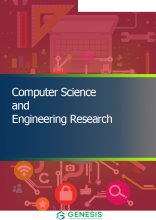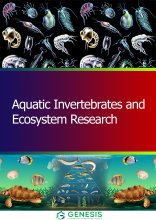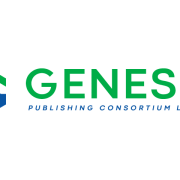Genesis Publishing Consortium Limited (GPCL) stands as a distinguished academic publishing entity committed to advancing knowledge and fostering scholarly excellence across a diverse spectrum of disciplines. With a firm foundation built upon the core principles of integrity, innovation, and collaboration, GPCL provides a dynamic platform for researchers, scholars, and academicians to disseminate their research findings, engage in scholarly discourse, and contribute to the global intellectual community.
Addressing challenges in scientific publishing
In today’s rapidly evolving landscape of scientific publishing, numerous challenges confront both publishers and researchers alike. From the cumbersome peer review process to the management of vast datasets, these challenges can often impede the timely dissemination of scholarly work and hinder the progress of scientific inquiry. Recognizing the need for innovative solutions, GPCL has embarked on a mission to revolutionize the traditional paradigms of academic publishing.
One of the most significant initiatives spearheaded by GPCL is the introduction of a pioneering continuous publishing model. Traditionally, manuscripts undergo a protracted process of peer review, editing, and publication, resulting in lengthy delays before they are made available to the scientific community. However, under GPCL‘s continuous publishing model, once a manuscript successfully completes the peer review and editorial processes, it is promptly published online without the need to await inclusion in a specific issue. This groundbreaking approach ensures rapid and seamless dissemination of research findings, allowing researchers to share their work with the global academic community in a timely manner.
Innovation in action
The implementation of the continuous publishing model represents a paradigm shift in academic publishing, offering numerous benefits to both authors and readers. By eliminating the delays associated with traditional publication timelines, researchers can promptly share their findings with colleagues and collaborators, facilitating real-time feedback and collaboration. Moreover, the immediate availability of research articles enhances accessibility for scholars worldwide, fostering greater engagement and participation in scholarly discourse.
In addition to the continuous publishing model, GPCL has also embraced technological innovations to enhance the quality and efficiency of the peer review process. Through the use of advanced manuscript management systems and artificial intelligence algorithms, GPCL streamlines the peer review process, enabling faster turnaround times and more rigorous evaluations of scholarly work. By harnessing the power of technology, GPCL aims to ensure that the peer review process remains robust, transparent, and equitable for all stakeholders involved.
Key features of GPCL journals
Continuous publishing mode
GPCL‘s adoption of a continuous publishing model ensures that manuscripts are promptly published online upon completion of peer review and editorial processes, eliminating the delays associated with traditional publication timelines.
DOI allocation
Every article published in GPCL journals receives a unique Digital Object Identifier (DOI) number, providing a globally recognized and permanent identifier that enhances discoverability and citation tracking.
GPCL journals adhere to an open-access policy, ensuring that research articles are freely accessible to researchers, scholars, and the general public worldwide, without any financial or logistical barriers.
Quality assurance
GPCL upholds rigorous standards of quality and integrity in scholarly publishing, ensuring that all published research undergoes thorough peer review by expert reviewers in the respective field.
Global reach
With a diverse portfolio of journals covering a wide range of disciplines, GPCL journals attract contributions from researchers and scholars worldwide, facilitating cross-disciplinary collaboration and knowledge exchange on a global scale.
Multidisciplinary coverage
GPCL journals cover a wide array of disciplines, ranging from natural sciences and engineering to social sciences and humanities. This multidisciplinary approach ensures that researchers from diverse fields have a platform to publish their work and engage with a broad audience.
Specialized focus areas
Within each discipline, GPCL journals often feature specialized focus areas or thematic collections that highlight cutting-edge research topics or emerging trends. These focused collections provide researchers with a targeted platform to showcase their work and contribute to the advancement of specific fields.
Editorial excellence
GPCL journals are overseen by esteemed editorial boards comprised of leading experts in their respective fields. These editorial boards play a pivotal role in maintaining the quality and integrity of the journals by ensuring rigorous peer review, upholding ethical standards, and guiding the strategic direction of the publications.
Publication formats
In addition to traditional research articles, GPCL journals often offer a variety of publication formats to accommodate different types of scholarly contributions. These may include review articles, case studies, perspectives, commentaries, and more, providing researchers with flexibility in how they communicate their findings.
GPCL journals offer comprehensive author services to support researchers throughout the publication process. This may include manuscript formatting assistance, language editing, graphical abstract creation, and guidance on copyright and licensing issues. By providing these services, GPCL aims to ensure that all authors receive the necessary support to effectively communicate their research findings.
Ethical standards
GPCL journals adhere to strict ethical standards in publishing, including policies on plagiarism, data fabrication, and conflicts of interest. Authors are required to adhere to these standards, and any breaches of ethics are thoroughly investigated and addressed by the editorial team.
Continuous improvement
GPCL is committed to continuous improvement and innovation in scholarly publishing. The organization regularly solicits feedback from authors, reviewers, and readers to identify areas for enhancement and refinement. By embracing a culture of continuous improvement, GPCL strives to stay at the forefront of academic publishing and meet the evolving needs of the scholarly community.
Accessibility initiatives
In addition to open access policies, GPCL journals may implement additional accessibility initiatives to ensure that research findings are accessible to all members of the academic community, regardless of geographical location or institutional affiliation. This may include translation services, audio summaries, or enhanced website accessibility features.
Community engagement
GPCL actively engages with the scholarly community through various outreach initiatives, including conferences, workshops, and webinars. These events provide opportunities for researchers to network, share best practices, and collaborate on research projects. By fostering a sense of community among scholars, GPCL aims to facilitate knowledge exchange and collaboration across disciplinary boundaries.
Sustainability practices
GPCL is committed to environmentally sustainable publishing practices. This may include efforts to reduce paper waste through digital publishing, minimize carbon emissions associated with printing and distribution, and promote responsible resource management throughout the publication process. By prioritizing sustainability, GPCL aims to minimize its environmental footprint and contribute to global efforts towards a more sustainable future.
Genesis Publishing Consortium Limited (GPCL) remains committed to advancing knowledge and fostering scholarly excellence through its innovative approach to academic publishing. By embracing a continuous publishing model, leveraging technological innovations, and upholding rigorous standards of quality, GPCL aims to empower researchers, scholars, and academicians to share their insights and contribute to the global intellectual community. As we continue to push the boundaries of scholarly publishing, GPCL remains dedicated to promoting collaboration, transparency, and accessibility in the dissemination of knowledge worldwide.
For inquiries, submissions, or partnership opportunities, please contact us at info@genesispcl.com. Join us in our mission to transform scholarly publishing and make a lasting impact on the advancement of knowledge worldwide.













